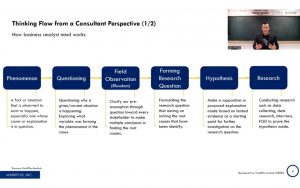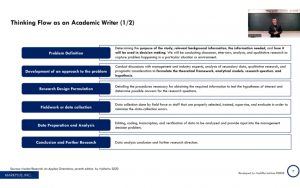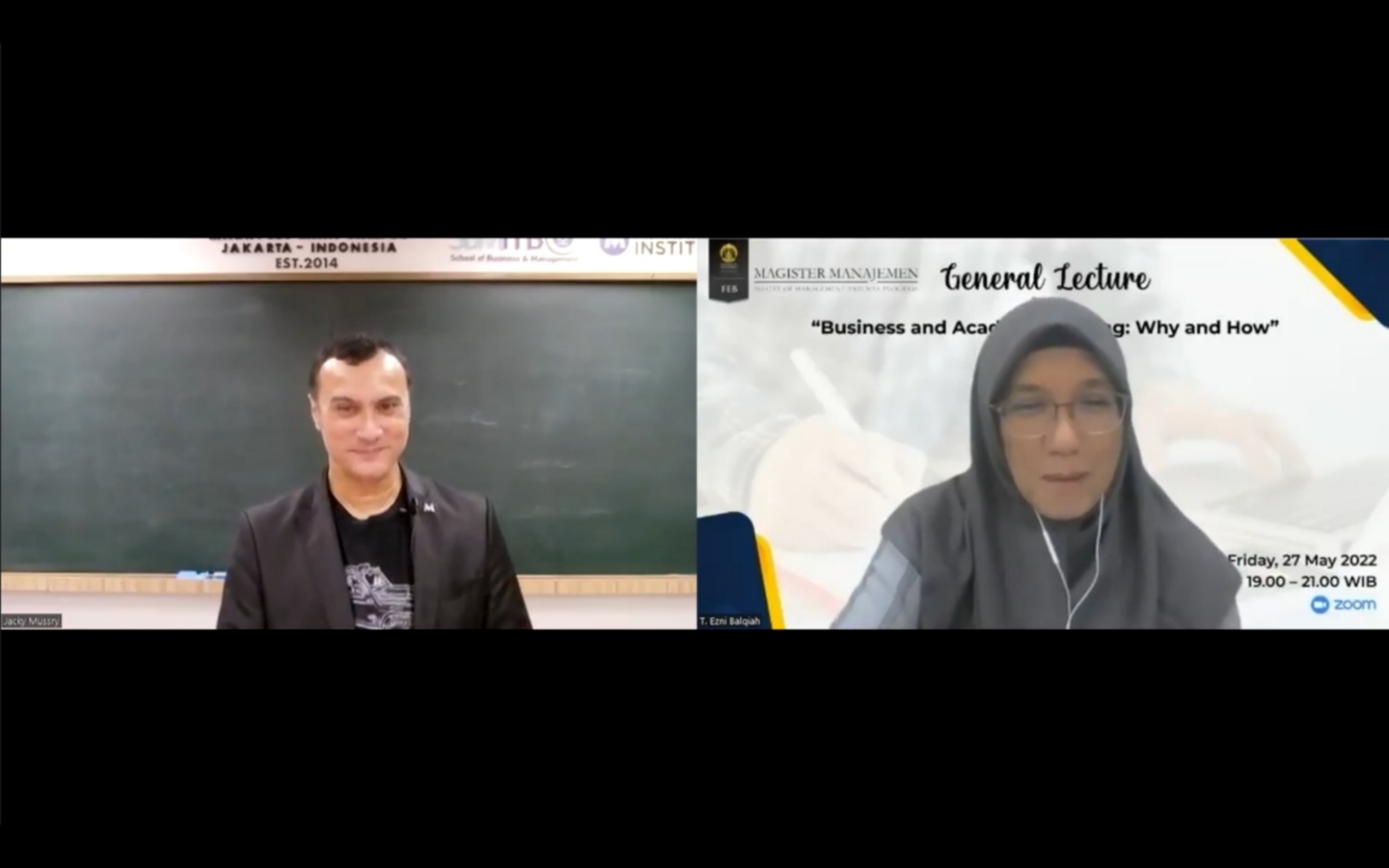Public Lecture of Master of Management FEB UI, Business and Academic Writing: Why and How
Rifdah Khalisha – Public Relations FEB UI
DEPOK – (27/5/2022) Master of Management (MM) FEB UI held a public lecture, “Business and Academic Writing: Why and How,” on Friday (5/27). Presenting speaker Dr. Jacky Mussry (Deputy Chief Executive Officer MarkPlus Institute) and host Mrs. Dr. Tengku Ezni Balqiah (Teaching Staff MM FEB UI).
 Academic writing communicates something, which can be in the form of ideas, information, and research. Jacky said, “Later, we will publish this scientific writing in journals or academic books to the wider academic community. So, it creates new knowledge and provides citation sources.”
Academic writing communicates something, which can be in the form of ideas, information, and research. Jacky said, “Later, we will publish this scientific writing in journals or academic books to the wider academic community. So, it creates new knowledge and provides citation sources.”
“Meanwhile, business writing is written business communication in a professional setting. In this writing, we must understand the purpose and target audience to convey information appropriately. Business writing is concise and clear, tends to be result-oriented,” he added.
According to Jacky, there needs to be a convergence between academics and business practitioners, “Both need critical thinking in building arguments. However, the sharp difference is that academic writing is complex, while business writing is simpler or simpler so that it is easy to digest. The most important thing is to pay attention to the target.”


He explained the flow of thinking of an academic and business practitioner that most of his writing starts from a phenomenon, observing the situation and capturing current issues, especially on topics whose causes and explanations are still in question.
Academic writing must fulfill a series of requirements to certify the validity and reliability of the report. That makes the production process more time-consuming. However, it is not rigid, making it adaptable to changing market conditions. The writing style is different but maintains formality and theoretical citations to formulate solutions.
“Unlike business writing, we rely more on the availability of evidence about a phenomenon. We pay less attention to academic writing procedures. Therefore, we can produce quality business writing in less time. However, it is more rigid in dealing with volatile markets,” Jacky says.
It is an ideal combination to combine the schools of thought of academics and business practitioners in a piece of writing. The steps start from developing an argument (premise) that you want to prove, investigating theories and problems in the field, developing solutions to problems, making action plans, to determining conclusions and suggestions.
Finally, every piece of writing is essential for the further development of academic and empirical knowledge. Academic writing is vital for those who need theoretical support in their work. At the same time, business writing is essential for those who need a current practical landscape.
The point is that every piece of writing has its audience. “Writing is fun, but it is useless if the reader does not feel happy when reading it,” Jacky said, ending his presentation. (hs)
(rio)

